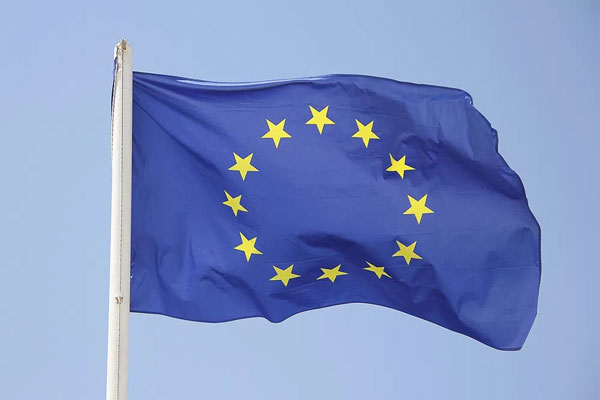Adriana’s capsize pushes for EU’s migration law reform

[Photo of European Union Flag. Photo Credit to Rawpixel]
The humanitarian tragedy of the capsize of the migrant ship Adriana’s urges for a global reflection regarding the true competence of counter-human trafficking systems by the European Union.
On 14 June 2023, a fishing trawler smuggling over 700 refugees capsized in the Ionian Sea.
Adriana carried Egyptians, Syrians, Pakistanis, Afghans, and more, leaving from Tobruk, Libya towards Italy.
Located in North Africa, Libya is notorious for large scale migrant smuggling business and repatriating families in search of safety to Europe across the Mediterranean.
Economic crisis in Pakistan and tensions between Bashagha and Dbeibeh in Libya create unendurable tensions, forcing migrants to seek freedom and more peaceful living conditions abroad, conducive to successful smuggling activity.
Innumerable refugees risk their lives and are exposed to ruthless smugglers and hazardous boat conditions.
These dangerous conditions have a pre-existing history on record, with over 26,000 people dead and declared missing since 2014.
Adriana serves as an extreme example of the prolonged deadlock between Europe and North Africa.
Although it is common for European coast guards to postpone rescues in concern it will rouse doubly extreme ship conditions and routes, Adriana is an exceptional case due to discrepant testimonies from Greek officials and survivors.
It has been certified that Greek authorities released 2 commercial ships and a coast guard vessel, but details on the rescue operation itself present opposing stories.
Survivors recounted the coast guard attempted to tow the trawler to shore, leading to its capsize.
Officials denied media reports, insisting that the rope was never tied to the coast guard vessel.
Numerous media outlets report that help was rebuffed, with passengers refusing assistance and insisting to resume their journey to Italy.
While details on how the boat sank remain inconclusive, key points about the history of precarious migration attempts can be drawn.
Claiming two thirds of all border-crossings globally in 2019, the Central Mediterranean route is a testament of rising global conflict over 2019 to 2023.
The European Union (EU) nullified several protection programs from 2014 to 2017, in hopes to enhance border surveillance and strengthen rescue at sea.
Especially after 2015’s surge of migration and smuggling-business, these initiatives maintained positive repercussions over time.
However, after Adriana’s capsize, organizations declared that the determination to implement befitting policies in recent years has weakened.
The Head of Greece’s Médecins Sans Frontières/Doctors without Borders (MSF), Duccio Staderini stated the “lack of political will” to guarantee rescues contributed to this tragedy.
The EU responded to these accusations by agreeing to a thorough reform of migration and asylum laws.
It was decided that member states of the EU, rather than the organization as a whole, would decide which country is safe for transferring migrants not eligible for asylum.
To transfer a migrant, the sending country must show a connection with the receiving country.
However, the nature of this ‘relationship’ can be interpreted by the member state, granting each country the power to return migrants to third countries that the EU may not deem as an appropriate sanctuary.
The ‘new solidarity mechanism’ grants member states flexibility in regards to the choice of individual contributions.
They may be relocation, financial contributions or other solidarity measures such as the distribution of personnel or developing capacity building.
Although member states are not obliged to discharge relocations, they have full discretion on which solidarity they wish to subscribe to.
Additionally, a quota for minimum annual number for relocations set at 30 0000 will be implemented to every member in the EU.
This means a minimum of 30 000 migrants should have their applications processed in a border procedure annually.
Although this is seen as an ‘historic advancement’ in migration legislation, critics are concerned on whether or not this will open a pathway for arbitrary transfers to countries with questionable records on human rights.
Focused on the safety of children and unchaperoned minors, countries such as Germany, Ireland, Luxembourg and Portugal are pushing for a campaign to exclude them from the new law.
Others point out a parallel with the 2015 scheme taken to relocate 160 000 refugees.
The EU pushed forward the program, but only saw less than 35 000 actual transfers.
The past year’s voluntary migrant redistribution plan had a target of 8 000 transfers, but only reached fewer than 1500.
Feelings of skepticism and concerns regarding the logistics of this year’s migration and asylum laws runs throughout the entire nation and globally.

- Stella Kim / Year 11
- North London Collegiate School Jeju


